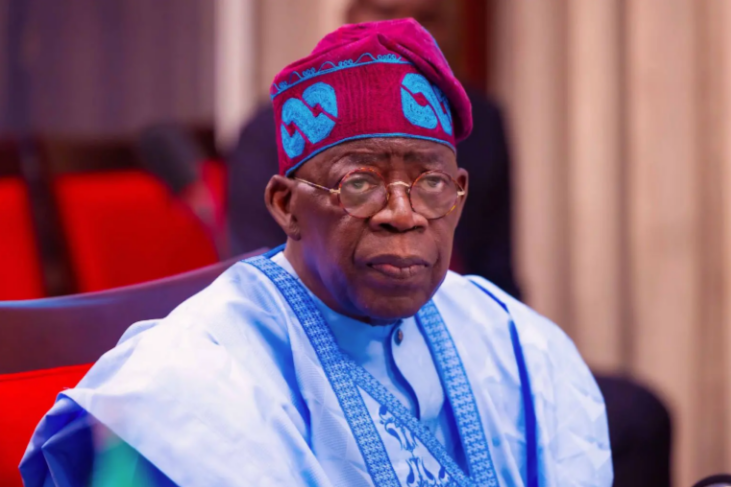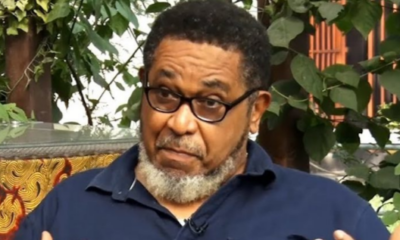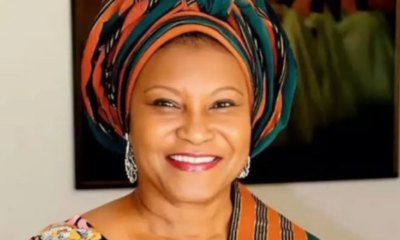News
Tinubu’s interventions fail to tackle Nigeria’s economic hardship in H1 2024

Despite the government’s Renewed Hope Mantra, Bola Ahmed Tinubu’s initiatives may not have been able to alleviate the nation’s deepening economic misery in the first half of 2024.
This was revealed by economists and financial specialists in separate interviews with BETA NEWS.
Giving Nigerians optimism has not been easy for President Tinubu, a former governor of Lagos State who marked his first anniversary in office on May 29, 2024.
This development follows the Federal Executive Council’s recent approval of the distribution of N555 billion to 100,000 families, with a three-month payment of N50,000.
Remember that the “Conditional Cash Transfer” was also approved by the President in October 2023, with Betta Edu, the now-suspended Minister of Humanitarian Affairs and Poverty Alleviation, serving as the beneficiary.
President Bola Tinubu introduced the program, which is part of the $800 million financial support from the World Bank, on October 17, 2023.
Additionally, to support domestic manufacture of vital healthcare items, the federal government recently granted zero tariffs, excise duties, and Value Added Tax on specialty machinery, equipment, and pharmaceutical raw materials as part of the fiscal package.
Additional fiscal measures include a $3.3 billion prepayment facility from Afreximbank guaranteed by crude oil, $2.5 billion in loans from the World Bank to support Nigeria’s foreign exchange supply, and initiatives to raise taxes spearheaded by the Presidential Tax and Fiscal Policy Committee.
Nigerians have lamented the effects of headline and food inflation, which increased to 33.95 percent and 40.66 percent in May 2024, respectively, despite the interventions.
The inference is that, given the rising misery index, Nigerians’ purchasing power has decreased.
Worse, by the end of March 2024, Nigeria’s debt load had increased to N121.67 trillion.
During the first quarter of 2024, the nation spent $1.12 billion on paying off its foreign debt, despite earning N3.94 trillion in revenue during that same period.
This comes after the Central Bank of Nigeria announced various policies, the most recent of which was the termination of the Price Verification System Portal for importers, causing the Naira to drop to N1508.99 per dollar at the official market on Monday.
Financial expert and Chief Executive Officer of SD & D Capital Management, Gbolade Idakolo, told BETA NEWS on Monday that Tinubu’s policies over the mentioned period had not lessened the suffering of Nigerians.
He claimed that Nigerians had not yet experienced the benefits of federal and state welfare programs.
“My major concern about these measures is the parameters being used to determine those eligible for those grants for three months.
“These welfare policies of the Federal and the state governments have been seen not to get to the intended beneficiaries and the aim is always defeated in the long run.
“I also believe that this measure would not address the hardships being faced by the very poor citizens that these policies are targeted to assist because of continuous high food inflation and skyrocketing cost of living.
“The fiscal policies of Tinubu’s government in the first half of the year has not helped to alleviate the hardship introduced by its monetary policies. This has led to the unbearable situation the country found itself,” he told BETA NEWS.
The director of the Center for the Promotion of Private Enterprise, or CPPE, Muda Yusuf, countered that while the government has implemented several measures, more work has to be done to have an influence on Nigerians as a whole.
He called on the government to increase its financial interventions in the mining, construction, iron and steel, and allied industries.
“There is a lot the government can do via the fiscal policy level. In terms of direct support to the farmers, it is better to do it directly than through the state governments. I think through that, there should be an impact in terms of food production. I hope the state government will commit to this with all sense of sincerity.
“The measure can help the supply side. I am aware that there are also plans to have similar interventions to the real sector.
“The real sector is responsible for Fiscal Policy measures rather than monetary policy. Fiscal policies are more potent in driving production”, he stated.
The latest N555 billion cash release approval, according to Prof. Godwin Oyedokun, a don at Lead City University in Ibadan, is an important fiscal action meant to alleviate the hardship that many Nigerians face as a result of inflation.
Oyedokun clarified, however, that if steps aren’t taken to boost supply and stabilize prices, a significant infusion of cash into the economy may make inflationary pressures worse.
“The fiscal measures introduced by Tinubu, including the N555 billion cash transfer program, demonstrate a proactive approach to addressing the immediate economic challenges faced by Nigerians.
“However, the success of these measures depends significantly on the coordination with monetary policies to manage inflation and ensure overall economic stability.
“A holistic approach, combining short-term relief with long-term economic reforms, is essential for addressing the underlying issues causing inflation-induced hardship and achieving sustainable growth,” he added.












